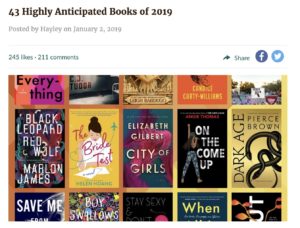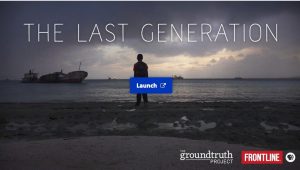I know that the prospect of reading an actual novel in a second language may be much too ambitious a goal. However, I do like to sift through book reviews and talk about what students might like to read. And hey, it might get them interested enough that they will attempt it. If they do, I would not hesitate to encourage your students to get the audio version of the book as well.
I love audio books! Not only can I read while walking the dog, they provide a fantastic model of pronunciation and rhythm. Most “readers” even offer a speed feature where you can listen slower or faster. If this is something that could interest your students, send them to Audible.com or check with your local library (it will depend on the country you are in) to see what is available for free.
Pre reading discussion:
- What was the last good book you read?
- What did you like about it?
- What kind of books do you like to read?
43 Highly Anticipated Books of 2019
Scan through some of the books on this page and pick one that catches your eye

- Which book would you like to read and why?
- What do you think the story will be about?
- What books have you read in the past that are similar to this one?
- Is there a pattern or theme to the books you like?
Have a great discussion!





